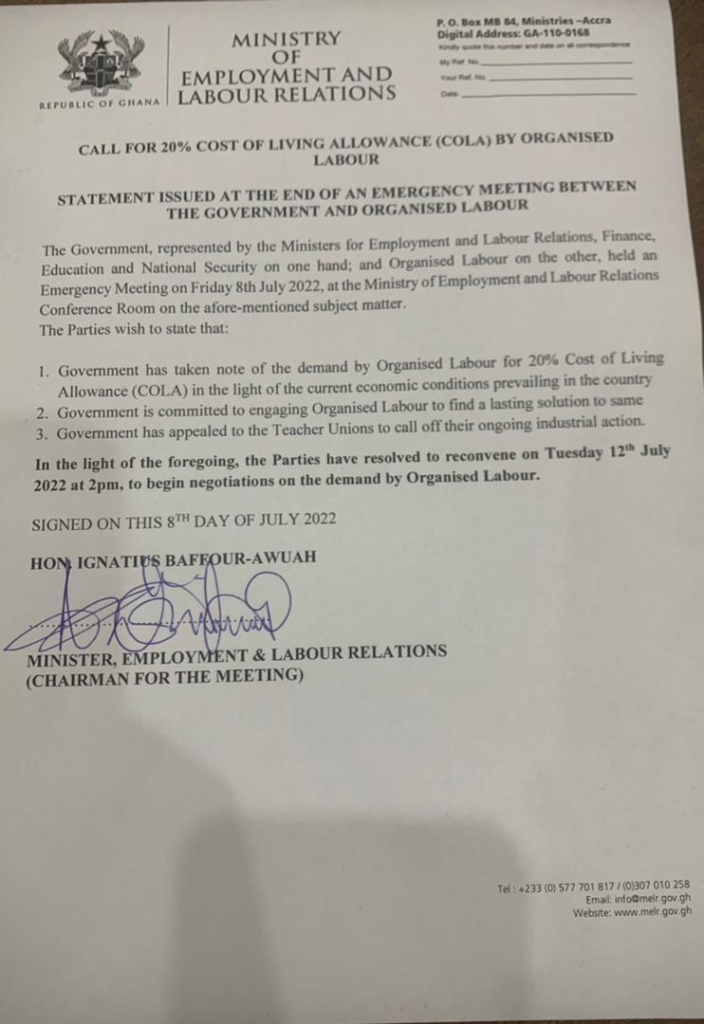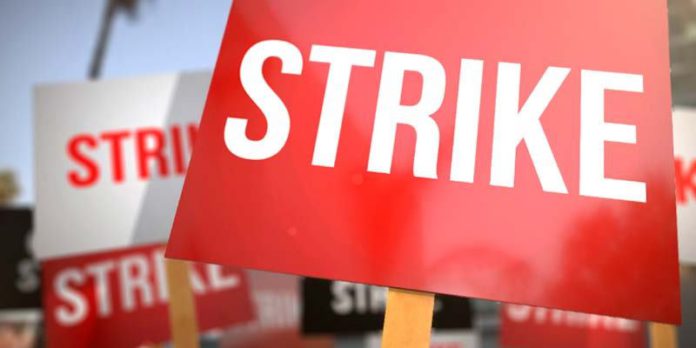The Ministry of Employment and Labour Relations will meet members of organised labour for the second time on July 12, 2022.
The meeting, according to a release signed by the Minister of Employment and Labour Relations, Ignatius Baffour-Awuah, will be used to discuss the demand for the 20 per cent Cost of Living Allowance (COLA) by Organised Labour.
The Ministry indicated that the July 12 meeting will be a continuation of an emergency meeting held on Friday, July 8.
The meeting was attended by the Ministers of Employment and Labour Relations, Finance, Education and National Security on one hand; and Organised Labour on the other hand.

The statement noted that “government has taken note of the demand by Organised Labour for a 20% Cost of Living Allowance (COLA) in the light of the current economic conditions prevailing in the country.”
According to the government, “it is committed to engaging Organised Labour to find lasting solution to same.”
The Ministry therefore appealed to the striking teacher unions to call off their industrial action.
On Monday, July 4, 2022 four teacher unions declared an indefinite nationwide strike over demands for the payment of the Cost of Living Allowance (COLA).
The unions, comprising the Ghana National Association of Teachers (GNAT), the National Association of Graduate Teachers (NAGRAT), the Teachers and Educational Workers Union (TEWU) and the Coalition of Concerned Teachers Ghana (CCT), are demanding that 20% of their basic salary be paid to them.
They blamed their industrial action on government’s failure to pay the COLA, which they argue could have helped to mitigate the impact of the rising cost of living.
But after a June 30 deadline was exhausted, the workers have withdrawn their services, both in and outside the classroom.
Meanwhile, School Authorities have been compelled to rely on National Service Personnel (NSP) in the absence of the striking teachers.
According to the spokesperson for the Ministry of Education, Kwasi Kwarteng, the use of NSP is part of a contingency plan rolled out to mitigate the effect of the strike.
“The contingency plan, I am aware that National Service Personnel are at post and they are helping together with the directors of education, both at the regional and the district levels with some school Management,” he said.
He stated that the Ministry is working to resolve the issue for the teachers to resume their posts.

